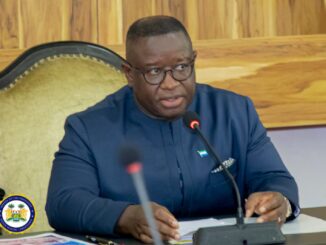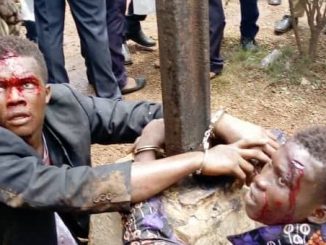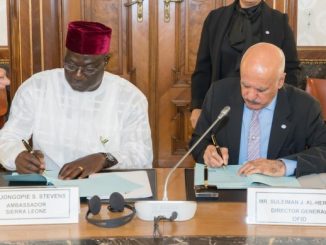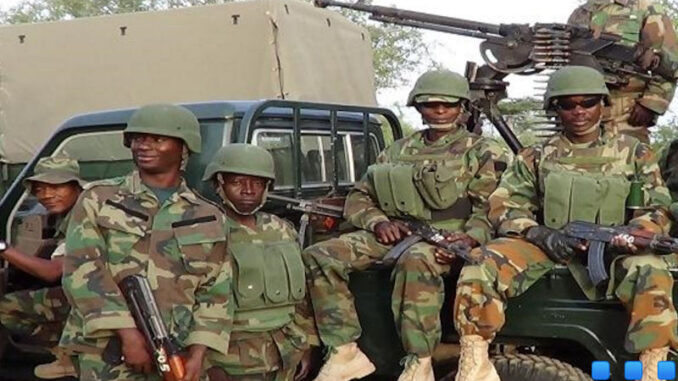
A SAFE MILITARY IS WHEN IT’S RAPE FREE**
The Criminal Justice System Must Support Victims of Sexual Violence In Accordance with National and International Obligations and Commitments
Rape, also known as sexual assault, is a violent behavior often used as a weapon of war. The majority of rape perpetrators are men, and the majority of their victims/survivors are women and girls. Rape, which is among the most common forms of violence against women, is a profound violation of a survivor’s physical, psychological and social integrity. In a few words, can destroy a person for life.
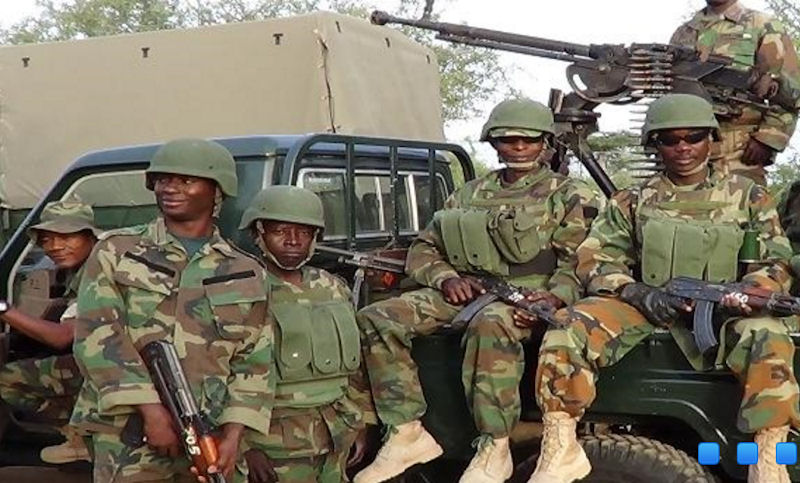
The gender-based inequalities in the Sierra Leonean society are highly evident in the many risks of gender-based violence that women and girls face. Violence against women and girls (VAWG) is rooted in unequal power relations that are further reinforced by social and gender norms that falsely normalize and justify VAWG, including rape. The continuing and perhaps rising number of incidents of rape against women and girls, point to the existence of social norms in our Sierra Leonean society that make it acceptable for men to feel entitled to women’s bodies without their consent. These violent gender-based abuses are taking place in Sierra Leone’s highly esteemed Ministry of Defence (MoD) and the Republic of Sierra Leone Armed Forces(RSLAF).
According to official documents consulted by CHRDI, between 2019 and 2020 there were at least 46 cases of sexual violence against women perpetrated by personnel of the Sierra Leone’s Ministry of Defence, while older cases were still pending trial. Here are just a few examples:
– 4 alleged gang rapes
– 27 alleged sexual penetrations, including incest
– 2 alleged gang sexual penetrations
– 200 and more domestic violence/assault cases
– 16 cases of carnal knowledge
His Excellency, Julius Maada Bio, President of Sierra Leone, declared rape and sexual violence a national emergency in February 2019, at the time when some of these cases of assault and rape were continuing to take place within the MoD. Official documents revealed horrifying details about alleged robbery, rapes, sexual penetrations, and murder cases in the RSLAF/MoD ranks.
The General Recommendation 19 of the Convention on the Elimination of all Forms of Discrimination Against Women (CEDAW) establishes that gender-based violence, such as rape, is an extreme form of discrimination which ‘seriously inhibits women’s ability to enjoy rights and freedoms on a basis of equality with men’ (CEDAW 19, A/47/38). It also imposes an obligation to the states parties to take positive measures and develop strategies to eliminate all forms of violence against women.
It is CHRDI’s view that every survivor of sexual violence who reports the offence to the police should be seen as an intrinsically vulnerable witness for the purposes of accessing supports specific to their situation and their capacity. The investigators must also take the approach most favorable to the survivor, since such cases are extremely difficult to prove, particularly in a country like Sierra Leone which lacks sexual assault kits and forensics analysis laboratory.
We believe that with these disadvantages, the criminal justice system should take the approach most favorable to survivors, and government institutions, in particular, including MoD/RSLAF, must focus resources and efforts to prevent such cases from happening with continuing training, awareness, and by encouraging survivors to report these crimes, and ultimately holding perpetrators accountable to end impunity.
The culture of *“don’t ask, don’t tell”* with regards to sexual assault must end within the MoD/RSLAF and all government organizations, in line with President Bio’s direction for our country.
One of the key challenges in the prevention and eradication of rape and sexual harassment is the issue of consent, and the current lack of understanding that only *yes* means *yes* when given from individuals over the age of 18, while any act of sexual contact with a child under the age of 18, regardless of consent, is a crime.
Equally important is that, in the cases of women/men over the age of 18, the consent is given with free will, without being induced by fraud, coercion, violence or threat of violence, and in the person’s full capacity – which is not the case, for instance, when someone is drunk and incapacitated or lacks the ability to make a decision, such as in the cases of people with mental disabilities.
It is disappointing to report that there were weaknesses in the system that frequently failed survivors of gender-based violence. In Sierra Leone, when a gender-based violence complaint is filed, the Police are required to open an investigation. However, in the MoD/RSLAF, many victims are reluctant to come forward because of pressure from society to accept domestic violence as the norm, financial dependence on the perpetrator, and lack of confidence in the criminal justice system.
Our confidential official sources revealed that, in some instances, senior military personnel and Police officers allegedly dismissed complaints of gender-based violence because they believed them to be family matters and not crimes.
The stigma around sexual violence was also cited as a contributing factor to underreporting.
According to the CEDAW Convention, it is internationally recognized that violence on the grounds of gender is a form of discrimination. Sierra Leone is a signatory to the CEDAW Convention but the alleged disregard and perceived unwillingness to fight gender based sex abuse in government institutions like the MoD may be seen as defaulting on its obligations.
CHRDI is therefore making a public request to the United Nations to refer SIERRA LEONE to its obligations under international law with regard to gender-specific violence against women and girls.
CHRDI believes that domestic violence and violence against women and girls are barriers to full gender equality, and by extension, they are barriers to the social and economic development of a society.
The not-so-distant history of rape being used as a weapon of war, especially by military personnel, we fear that ignoring cases of sex-based violence within the MoD risks the acceptance of the idea that the behavior is acceptable.
As a United Nations Social Economic Council Accredited Organization, CHRDI urgently amplifies the call for women’s justice: the military and security forces must hold to account all perpetrators among their ranks for their alleged brutality and impunity, which is fueling the historical violation of women’s rights.
#END#
Note: Campaign for Human Rights and Development International (CHRDI) is a Rights based social-policy advocacy Organisation. We Draw attention to the responsibility of duty-bearers to uphold human rights, and seek to support rights-holders to claim their rights. CHRDI is in Special Consultative Status to the United Nations Economic and Social Council and accredited to many UN Agencies.
***©️Human Rights and policy Brief (24-01-2022)***
—
Cell 0023278527242

